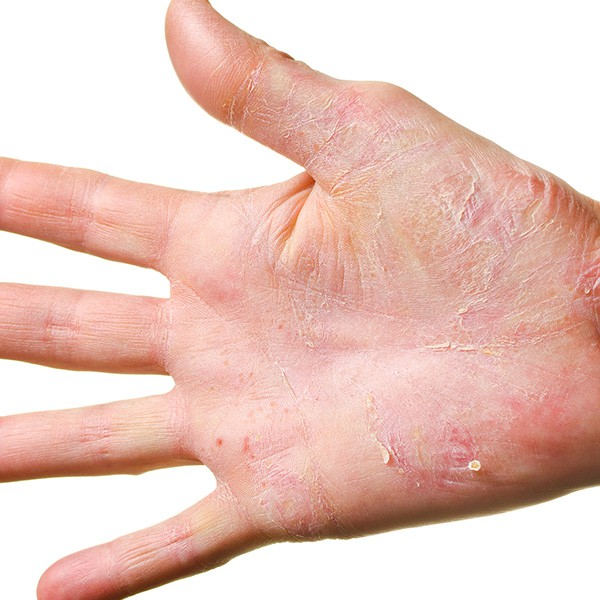
It’s Red and Itchy: How to Differentiate Between Eczema and Psoriasis
Psoriasis and Eczema are both chronic skin diseases that cause red, scaly, and sometimes itchy patches on the skin. There is a difference between them and a qualified dermatologist, like Dr. Daniel Glass based on Harley Street in London, will usually be able to determine the which condition you have based on subtle differences in the appearance of the symptoms.
Psoriasis
According to NHS UK, approximately, 2% of people in the UK suffer from psoriasis, which usually develops in individuals under 35 (although it can appear at any age). Psoriasis is a chronic condition however it can goes through cycles of no or minimal symptoms followed by periods in which it is more severe.
Psoriasis is a condition that causes overproduction of skin cells. The excess, dead skin cells build up and create patches of red, flaky, skin covered by silver scales that can be itchy. The patches typically affect certain area of the skin such as the scalp, elbows and knees. It can be more severe and affect much larger areas of skin. There is likely a genetic element to developing the disease and people with psoriasis often have a close family member with the same condition, yet it is not contagious.
Treatment for Psoriasis
While there is no cure for the condition, there are a number of useful and successful treatment options that Harley Street psoriasis expert Dr Daniel Glass has that can improve the symptoms and clear up the patches on the skin. The type of treatment given will depend on the type and severity of the psoriasis and usually doctors will start with more mild treatments and move to more aggressive ones if those don’t work.
- Topical
Often a topical treatment will be tried first which can include ointments or creams to be applied to the affected area that are made with vitamin D or topical corticosteroids. - Phototherapy
Photo or light therapy involves exposing the affected area on the skin to ultraviolet light. - Systemic Medication
This includes oral medications or injections.
Eczema
Eczema is also a chronic condition that causes skin to become red, itchy, dry and cracked. Eczema is a common but complex condition; development of which is dependent on both the patient and their environment. A change in a gene that is important for maintaining the skin barrier has been linked to the development of eczema. If the skin barrier does not function correctly patients are much more susceptible to infection and to irritation. A defective skin barrier also allows allergy-inducing substances to enter the skin, causing itch and inflammation. People with eczema are more likely to suffer from asthma and hay fever. The symptoms can be exacerbated by soaps or detergents, certain foods, weather conditions or even stress. Eczema mostly commonly affects the skin behind the knees, at the front of the elbows, on the neck, hands, cheeks and scalp.
Treatment for Eczema
Like Psoriasis, there is no definitive cure for eczema but there are a range of treatment options that improve the symptoms. These include:
- Topical Corticosteroids: Over-the-counter hydrocortisone or prescription steroid creams can help to reduce swelling, redness and itching.
- Antihistamines: oral antihistamines can help relieve the itching symptoms but sometimes cause drowsiness.
- Moisturizers: regularly applying moisturizing cream for dry skin can often help.
- Oral medications: if the eczema is severe, a doctor may decide to prescribe an oral systemic medication to reduce the symptoms.
Self- care techniques:
- Avoid triggers or allergens
- Try not to scratch
- Use soaps substitutes
- Use bath oils
- Reduce stress
While some treatments can work well for both psoriasis and eczema. Both of these skin conditions can cause significant discomfort and depending on where they affect you can result in self-esteem issues like acne does. It’s important to see a dermatologist to assess the condition and determine the most effective treatment.
If you have a rash or skin condition, you can schedule an appointment with Harley Street eczema specialist Dr. Daniel Glass. Call us today at 020 3282 0011.